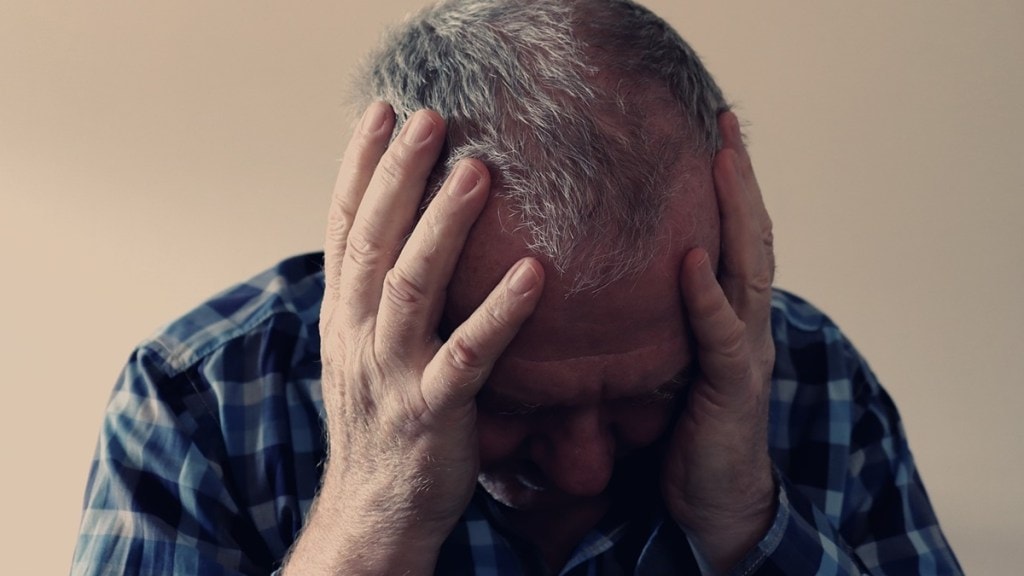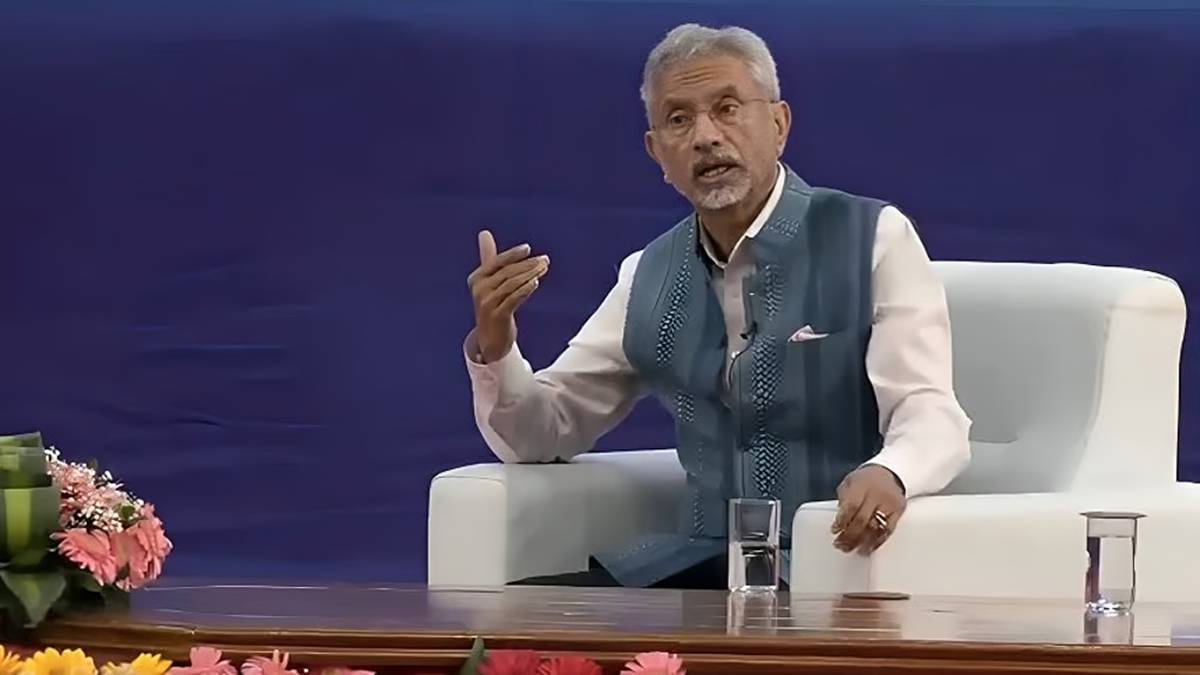Trigger warning: Suicide, depression
Parth* was 18 years old when his mental health started deteriorating. The situation got so bad for him, his family took him for Electroconvulsive therapy (ECT), also known as electroshock therapy. During this period, he experienced the symptoms of mania for the first time.
Although the doctor gave him medicines, he was not adhering to them as he believed that they make him fat which consequently made him insecure about his body. After the first episode of mania, his focus and concentration got affected and he started feeling disconnected with his surrounding.
“Passing my graduation was very tough as I was feeling very lonely in first year. Somehow I met Reiki healer in 2001 which helped me a lot and changed my mental status and I was able to clear my exams. My last year of college was very good in the beginning with friends as I did lot of cycling and exercises. But soon in December equation changed with the arrival of Bipolar schizoaffective disorder. I was not taking medicines because Olanzapine made me very fat and I paid the price for not taking medicines,” Parth told Financial Express.com.
He also revealed that till then he had no idea that he is now a “permanent” patient of Bipolar Disorder. As he stopped taking medicines, things continued to be difficult for me. As time passed, he struggled to study, pass exams and he was unable to get a job. Over the years, even though he did get employed, it was difficult to work, interact with his colleagues and even struggle to stay calm.
He consulted various doctors but even though things got better for a while. It was difficult when the “episodes” struck him.
“He gave me sertraline and lonazep. I took the medicines and changed my process from day to night. Although I was calm in night my employers were not happy,” Parth revealed.
In 2010, Parth was hit by an extreme episode of mania as the doctor missed giving him mood stabilizer. The situation worsened and he lost his job. Unlike nights, morning were extremely difficult for him as he was unable to even wake up. His manic episode made it extremely difficult for him to stay employed.
His condition made it difficult to get new job opportunities or even have healthy relationships with friends and family. When the mania subsides, the guilt and shame hits Parth really hard.
“Now manic phase is gone and only guilt has remained. I mostly time pass now with watching sports and entertainment on my phone. Most of the companies only hire people now with freshers or with one or two years. I am restricted to only data entry. I have no friends and I am not married. I decided to not get married because of limited ability and low income,” he told Financial Express.com.
I am over 40, still jobless and don’t really know what to do, he shared.
An estimated 40 million people live with bipolar disorder worldwide, as per the World Health Organization (WHO). Many people with bipolar disorder are misdiagnosed or untreated and experience discrimination and stigma.
What is Bipolar disorder?
Bipolar disorder (formerly called manic-depressive illness or manic depression) is a mental illness that causes unusual shifts in a person’s mood, energy, activity levels, and concentration.
“Bipolar Mood Disorder, often simply called bipolar disorder, is a mental health condition that affects millions of people worldwide. It’s characterized by significant mood swings that go beyond typical ups and downs. These mood shifts can be so intense that they interfere with a person’s daily life, work, and relationships,” Dr. Achal Bhagat, Senior Consultant Psychiatrist and Psychotherapist, Indraprastha Apollo Hospitals and Chairperson, Saarthak told Financial Express.com.
There are three main types of bipolar disorder:
- Bipolar I: This type involves severe manic episodes lasting at least seven days, often requiring hospitalization. People with Bipolar I also experience depressive episodes, typically lasting two weeks or more.
- Bipolar II: This type is marked by less severe hypomanic episodes (a milder form of mania) and more frequent depressive episodes.
- Cyclothymic Disorder: This involves milder mood swings over a longer duration, typically at least two years in adults or one year in children and adolescents.
According to Ruchi Sharma, Consultant – Clinical Psychologist, HCMCT Manipal Hospitals, Dwarka, people with bipolar disorder can quickly swing from extremes of happiness, energy, and clarity to sadness, fatigue, and confusion.
“Individuals with bipolar disorder cycle or shift between mood states of mania, hypomania and depression. The period in which the person experiences an elevation of mood and increased energy and activity is known as mania or hypomania. Mixed states consist of phases with both manic and depressive symptoms. People with mixed states often have extreme irritability, volatility, and a high risk for suicide,” Sharma told Financial Express.com.
She also highlighted that the exact cause of the disorder is not known yet. Some factors may contribute to vulnerability and risk for developing the disorder:
- Genetic: Family history of the disorder
- Environment factors: High perceived stress due to work or relationship issues
- Trauma: physical injury to brain; psychological trauma or abuse
- Neuro chemical changes: imbalance in neurotransmitters particularly noradrenaline, serotonin and dopamine.
What is the status of Bipolar in India?
In India, as in many parts of the world, bipolar disorder affects about 1-2 percent of the population, Dr. Bhagat revealed. However, several unique challenges exist:
- Stigma: Mental health conditions are often stigmatized, leading to reluctance in seeking help.
- Awareness: There’s a general lack of awareness about bipolar disorder, which can lead to misdiagnosis or delayed treatment.
- Access to Care: Many areas, especially rural regions, have limited access to mental health professionals and treatment facilities.
- Cultural Factors: Some may seek help from traditional healers rather than mental health professionals due to cultural beliefs.
Meanwhile, global prevalence of Bipolar disorder is between 0.5-1 percent. The highest prevalence is in USA at 4.4 percent.
“Lack of adequate reporting, difference in diagnostic practices and stigma related to mental health are chief causes of underreporting in India. Age of onset is between late adolescence to early 20s. It could happen later also. Prevalence is almost equal among men and women,” Sharma told Financial Express.com.
What are the signs and symptoms of Bipolar disorder?
Bipolar disorder is a mental health condition characterized by mood swings from one extreme to another. According to WHO, during a manic episode, a person experiences an extremely high mood with lots of energy (feeling very happy, excited, overactive). They may have a sense of euphoria, sudden shifts in mood or an excess of emotion (uncontrollable laughing or feeling much more irritable, agitated or restless than usual). On the contrary, during a depressive episode, a person experiences a depressed mood (feeling sad, irritable, empty). They may feel a loss of interest or pleasure in activities that they had previously enjoyed, WHO revealed.
According to Dr. Bhagat, bipolar disorder is characterized by alternating periods of mania (or hypomania) and depression. Let’s break down what these episodes typically look like:
Manic Episodes
During a manic episode, a person might experience:
- Increased energy and activity
- Reduced need for sleep
- Racing thoughts and rapid speech
- Inflated self-esteem or grandiosity
- Risky or impulsive behavior (like excessive spending or reckless driving)
- Increased irritability
Depressive Episodes
In contrast, depressive episodes may involve:
- Feelings of sadness, hopelessness, or worthlessness
- Loss of interest in activities once enjoyed
- Changes in sleep patterns (sleeping too much or too little)
- Fatigue or loss of energy
- Difficulty concentrating or making decisions
- Thoughts of death or suicide
Some people may experience ‘mixed episodes’ where symptoms of both mania and depression occur simultaneously.
Diagnostic and treatment challenges of bipolar disorder
Diagnosing bipolar disorder can be challenging because its symptoms can overlap with other mental health conditions. According to Dr. Bhagat, a comprehensive psychiatric evaluation is typically needed for an accurate diagnosis.
Treatment usually involves a combination of:
- Medication: Mood stabilizers, antipsychotics, or antidepressants may be prescribed to help manage symptoms.
- Psychotherapy: Cognitive Behavioral Therapy (CBT) or other forms of talk therapy can help individuals manage their condition and cope with its impact on their lives.
- Lifestyle Changes: Regular sleep patterns, stress management techniques, and avoiding alcohol and drugs can help stabilize mood.
- Support Groups: Connecting with others who have bipolar disorder can provide valuable emotional support and practical advice.
Dr Bhagwat Narayan Rajput, Consultant – Psychiatry, HCMCT Manipal Hospitals, Dwarka explained that in India the diagnosis involves a thorough evaluation by a psychiatrist using standardized criteria like the DSM-5.
“Treatment typically combines medications (mood stabilizers, antipsychotics) with psychotherapy (CBT, family therapy). Access varies significantly between urban and rural areas,” Dr. Rajput told Financial Express.com.
Living with Bipolar Disorder
Sharma highlighted that bipolar Disorder has been identified as a lifelong disability under revised Rights of Persons with Disabilities Act, 2016. “People with this disorder face many challenges on everyday basis which include roller coaster of emotions and navigating them, disturbances in overall productivity and functioning, difficulties in relationships, suicidal thoughts, anxiety, stigma from family and society, vulnerability to drug or alcohol use and isolation,” she told Financial Express.com.
Parth continues to feel distant and lonely. Jobless for months, he is clueless and hopeless.
“I don’t know if there is any job opportunity for me now. I can’t apply at my previous organizations because of my record. In India or in Delhi-NCR is there any company that supports mental illness? Major companies help people suffering from physical disability but I am not able to see any major BPO supporting us. In western countries there is support but not in India especially private sector,” he informed.
He also advised that people with bipolar disorder should always adhere to the medicines and treatment plan and try to be as social as possible.
While bipolar disorder is a chronic condition, with proper treatment and support, many people lead fulfilling, productive lives. According to Dr. Bhagat, some key strategies include:
- Sticking to treatment plans
- Learning to recognize early warning signs of mood episodes
- Maintaining a stable sleep schedule
- Managing stress through relaxation techniques or exercise
- Building a strong support network of family, friends, and healthcare providers
“Remember, if you or someone you know is showing signs of bipolar disorder, it’s important to seek help from a mental health professional. Early intervention can make a significant difference in managing the condition effectively,” he told Financial Express.com.
*Name changed on request
DISCLAIMER: If you or someone you know is struggling with their mental health or in distress contact the Vandrevala Foundation’s helpline (+91-9999666555) which is available in 11 languages including English and can be accessed via telephone or WhatsApp 24×7. You can also contact Fortis Hospital’s National Helpline number 91-8376804102 which is available 24×7. You can also contact the Government Mental Health Rehabilitation Helpline ‘KIRAN’ at 18005990019 which is available 24×7.







